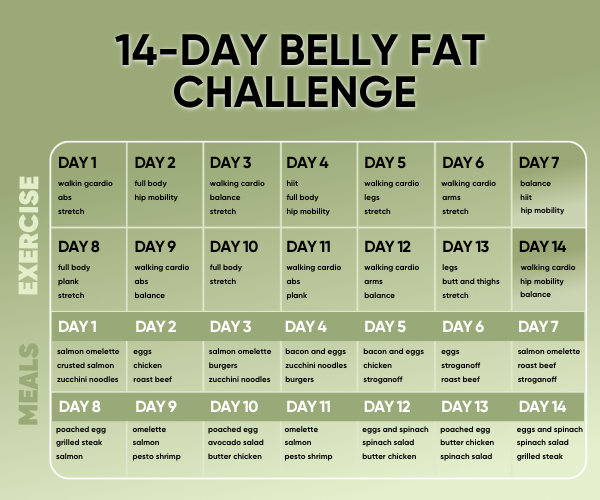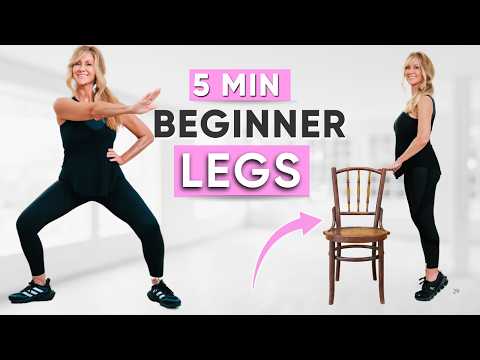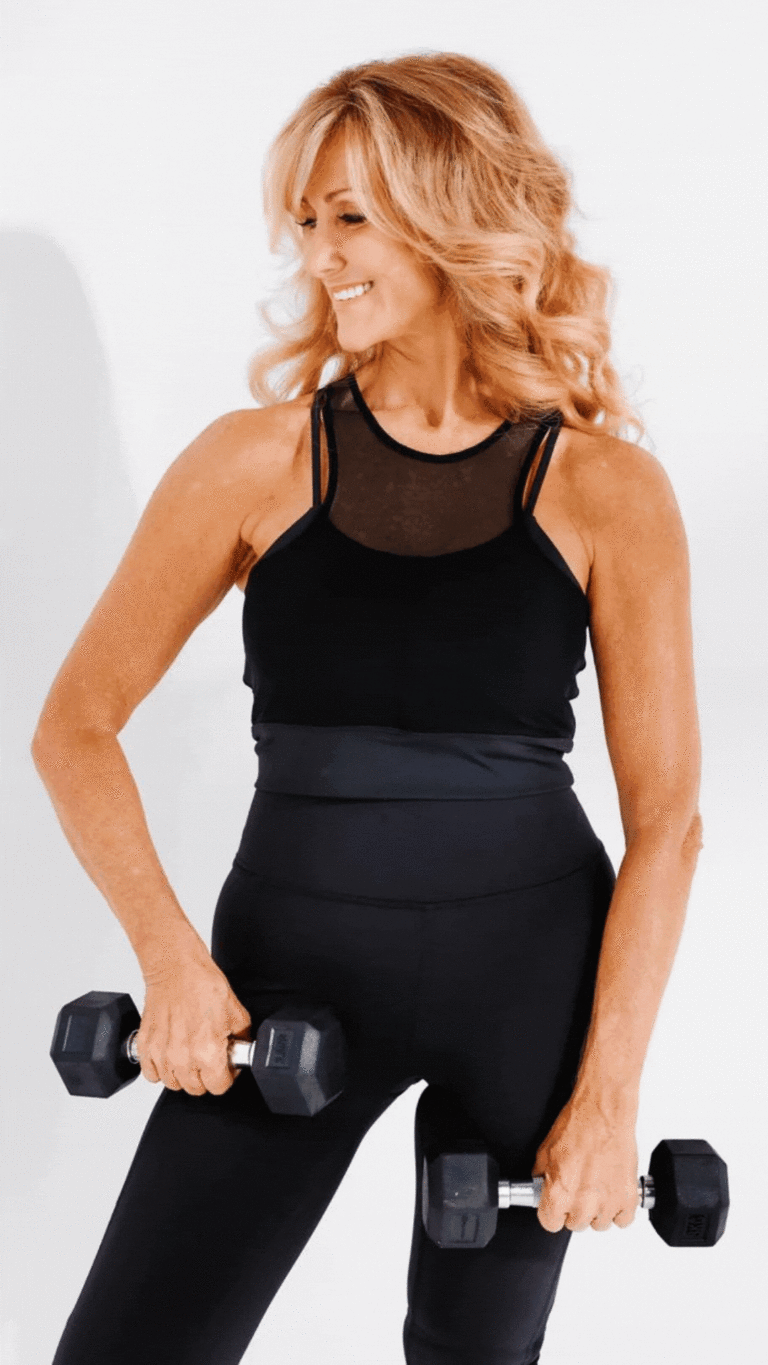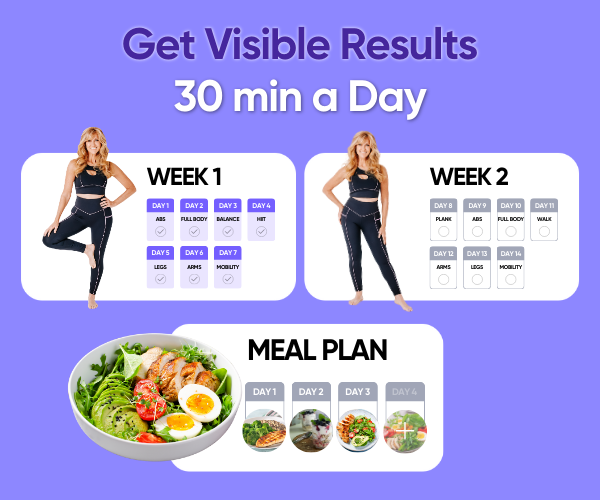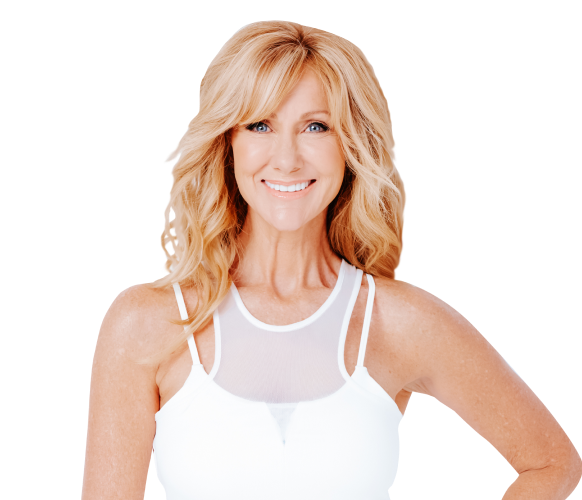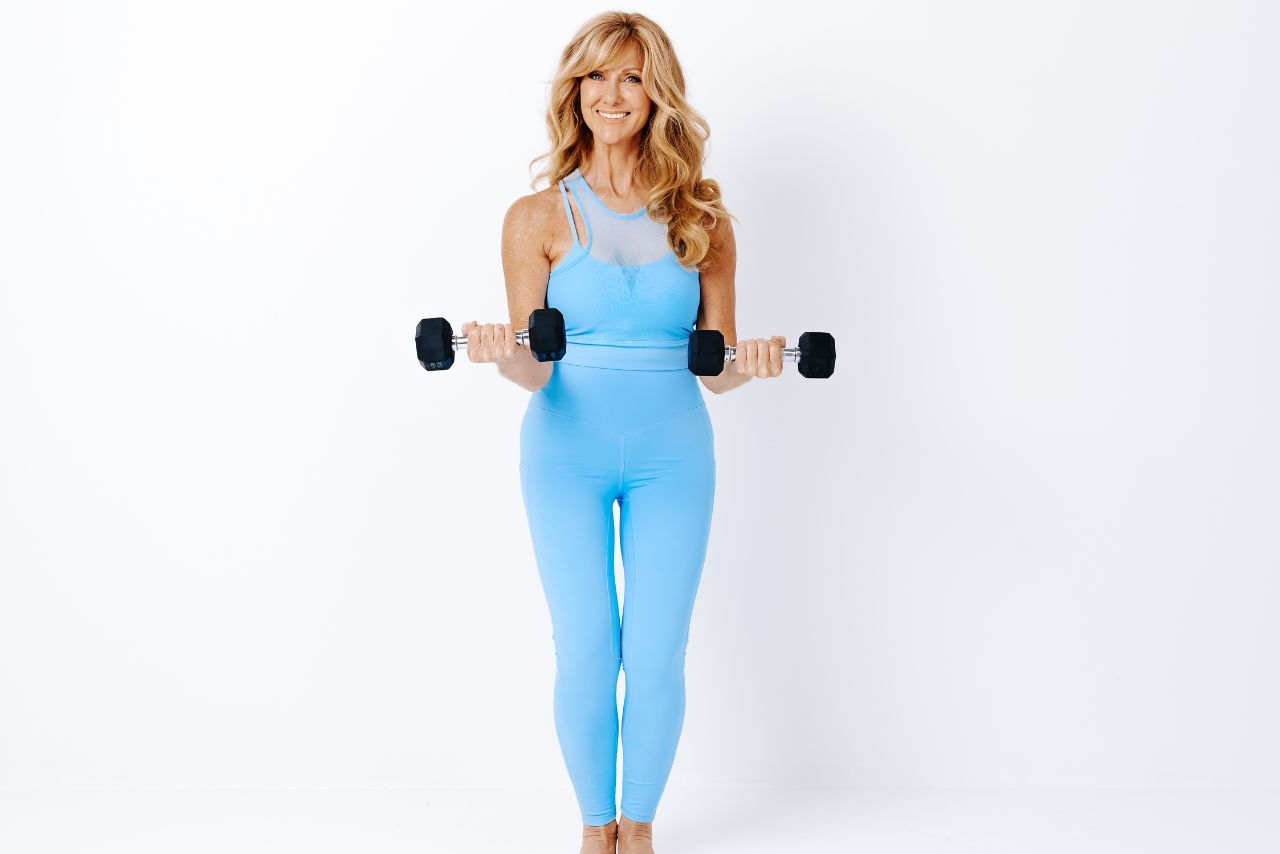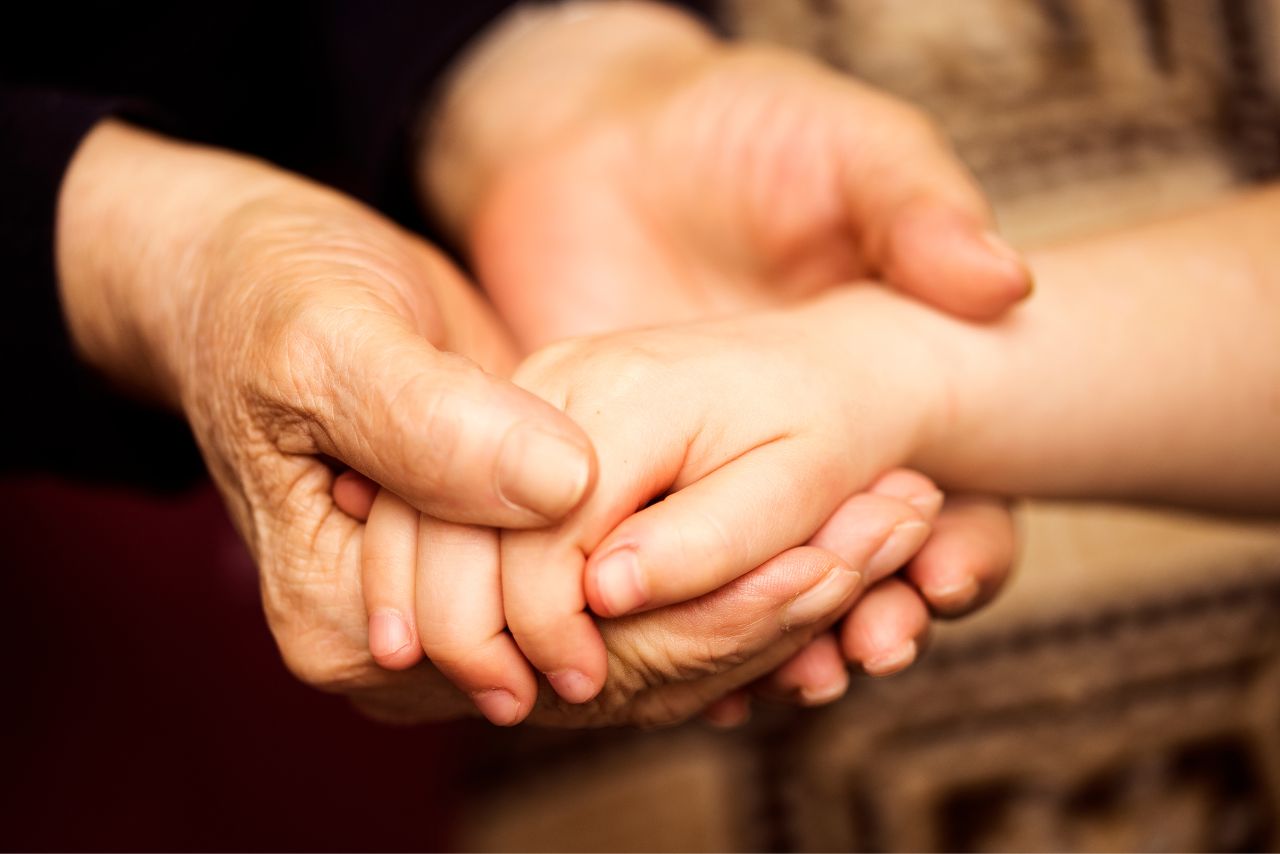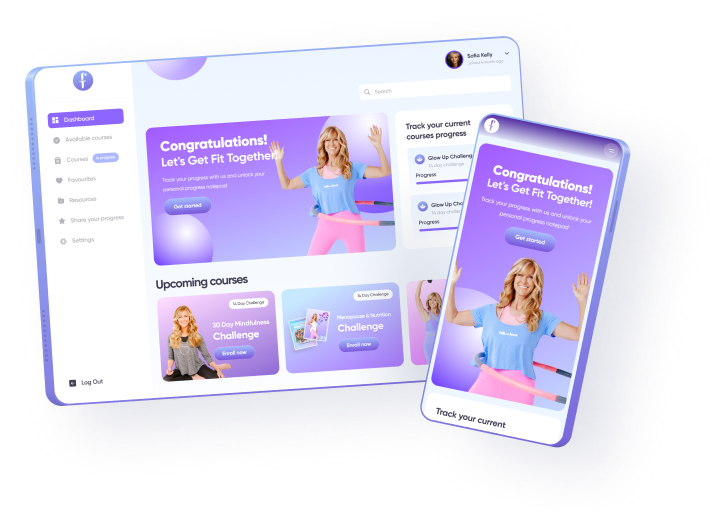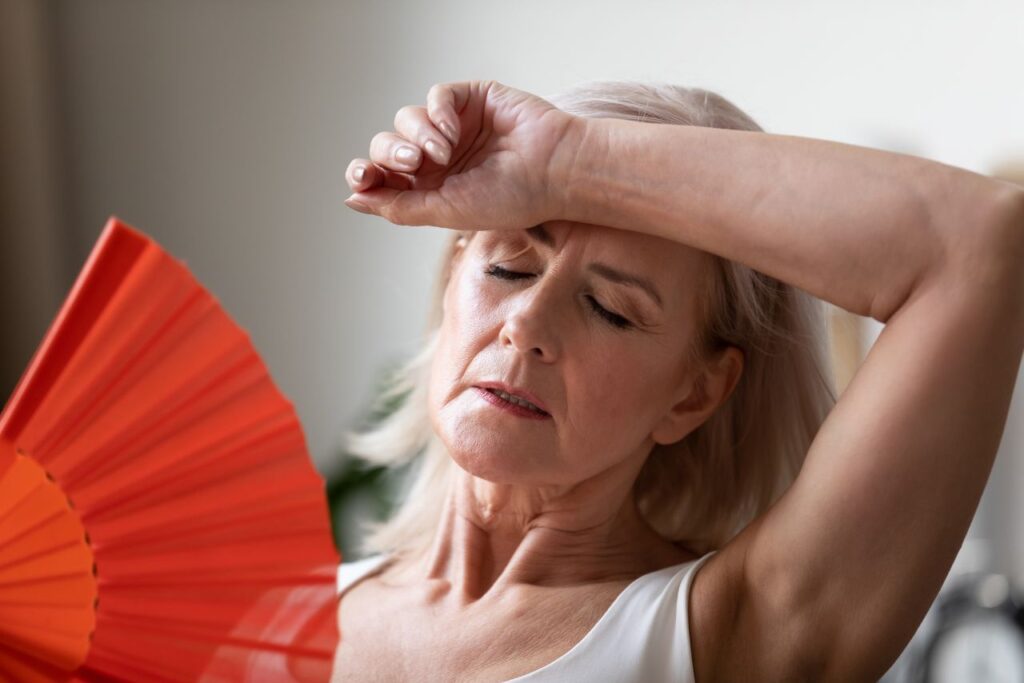
I didn’t wake up one morning and declare, “Ah, today is the day I enter menopause.” It arrived in whispers with restless sleep, a waistband that felt tighter, joints that ached for no obvious reason, and a foggy tiredness that coffee couldn’t erase.
Those seemingly random shifts finally pushed me to book a long‑overdue checkup. That appointment gave me the language to explain these first signs of menopause and the science to take charge of what was happening in my body.
Menopause isn’t an event; it’s a transition, and knowing the “why” behind the symptoms made all the difference.
Key Takeaways: What Are the First Signs of Menopause and When to Slow Down?
- The first signs of menopause usually show up in perimenopause (the “in-between” years before your periods stop for good).
- Common early signs are: irregular periods, hot flashes or night sweats, poor sleep, mood swings, brain fog, new belly fat, and more joint aches.
- These changes happen because your hormones (estrogen and progesterone) start going up and down, not because you’re weak or doing something wrong.
- You should slow down and check in with a doctor if:
- Your periods change suddenly or are very heavy
- You feel exhausted, very low, or anxious all the time.
- You have chest pain, breathlessness, or very fast heartbeats.
- You’re worried something just “doesn’t feel right”
- Menopause is normal, but it’s also a time to look after your bones, heart, sleep and mental health so you can stay strong in your 50s, 60s and beyond.
- If you ever feel very unwell, or you’re scared about your symptoms, don’t wait, talk to a doctor or go to urgent care. It’s always better to be safe.
What Is Menopause and When Do the First Signs Start?
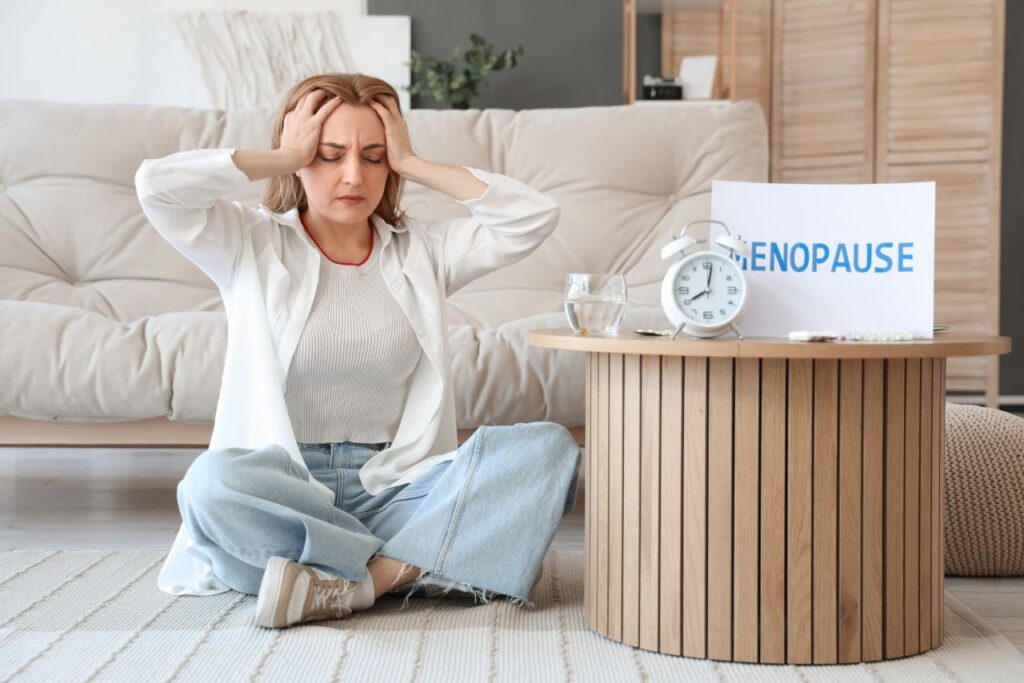
Menopause is officially the point when you’ve gone 12 months in a row without a menstrual period, with no other medical reason.
But the first signs start much earlier in a phase called perimenopause.
You might notice:
- Periods that become irregular, shorter, longer, heavier, or lighter
- Sudden mood swings or feeling more emotional than usual
- Night sweats or feeling hot for no obvious reason
- Sleep changes, such as waking at 3 a.m. and struggling to fall back asleep
- Energy dips or brain fog in the middle of the day
This phase can last several years before your final period, and symptoms can continue into postmenopause.
What complicates matters is that symptoms of thyroid disorders can mirror menopause, from cycle changes to energy dips. That’s why testing matters so you’re addressing the right issue.
A quick blood panel can distinguish whether you’re in perimenopause, full menopause, or dealing with a thyroid problem that needs its own treatment plan.
Menopause is:
- A normal biological milestone, not a disease
- A point in time that sits inside a longer transition affecting hormones, mood, bones, heart health, sleep and more
Knowing that this is a transition and not just one event helps you see the first signs as a reason to check in, not a reason to panic.
READ ALSO: The 3 Stages of Menopause: Perimenopause, Menopause, Postmenopause
How Can You Tell If It’s Menopause or Something Like Thyroid Problems?

Some thyroid disorders can look very similar to early menopause:
- Irregular periods
- Feeling unusually cold or hot
- Weight changes
- Fatigue and brain fog
- Mood shifts
Because of this overlap, it’s wise not to guess. A simple blood panel can help your doctor check:
- Thyroid function
- Hormone levels (when appropriate)
- Iron, vitamin B12, vitamin D, and other markers
Testing doesn’t always “prove” perimenopause (hormones can fluctuate day to day), but it can:
- Rule out thyroid disease or other conditions that need treatment
- Support the picture if your symptoms and age match the menopause transition
If your first signs feel strong, especially if periods change suddenly, you’re exhausted, or your mood feels very different, this is a good time to book a checkup and ask for a full review, not just a quick prescription.
What Hormone Shifts Are Rewriting Your Body’s Rules?
Estrogen and progesterone have been quietly looking after more than just your periods.
Estrogen helps to:
- Support bone remodeling (how bones break down and rebuild)
- Keep blood vessels flexible
- Influence brain chemistry and mood
- Shape where your body stores fat (hips and thighs vs belly)
When estrogen levels fall and fluctuate:
- Fat tends to shift toward the abdomen, even if your overall weight changes only a little
- Your internal “thermostat” becomes more sensitive, leading to hot flashes and night sweats
- Sleep can become lighter and more broken
- Joints may feel stiffer or more achy
- Mood and focus can feel less stable
Many women say the first signs of menopause show up as:
- A belly that appears almost overnight
- Nights spent tossing and turning
- A general feeling of “this body doesn’t behave like it used to”
Knowing this is hormone-driven helps you move from self-blame to strategic changes: better sleep habits, strength training, food choices that support blood sugar, and medical support when needed.
Why Do Your Bones Need Extra Protection at the First Signs of Menopause?
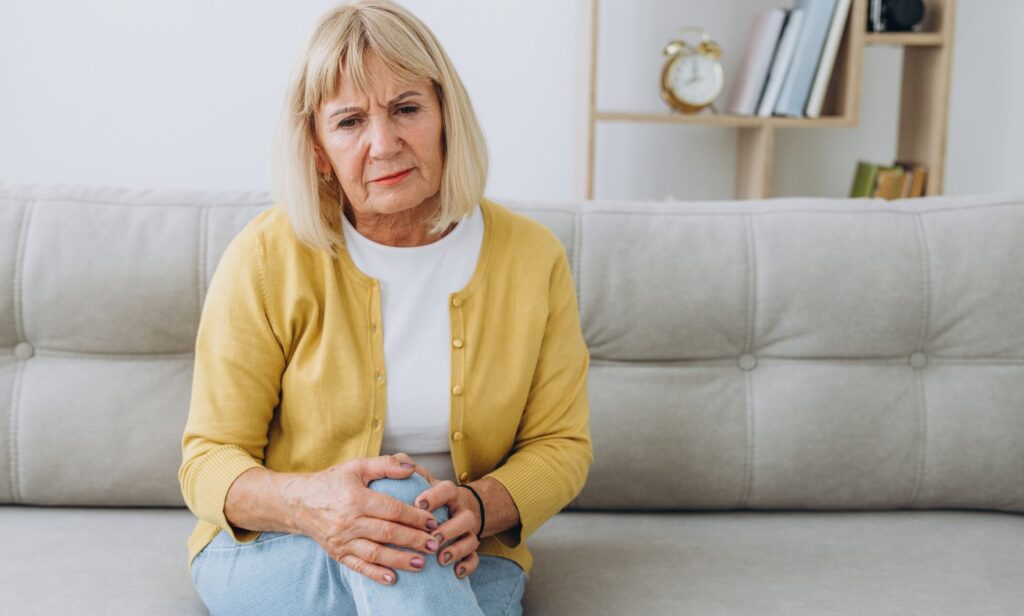
Bones might seem solid and unchanging, but they’re living tissue constantly being broken down and rebuilt. Estrogen helps keep that process in balance.
When estrogen drops:
- Bone breakdown speeds up
- Bone building slows down
- Over time, this can lead to osteopenia (low bone density) or osteoporosis
Globally, around 1 in 3 women over 50 will experience osteoporotic fractures.
You won’t feel your bones thinning. Often, the first obvious sign is a fracture from a minor fall.
That’s why this is the decade to ask:
- “Do I qualify for a bone density (DXA) scan?”
- “What is my T-score, and what does it mean?”
- “Should I be doing more resistance training?”
- “Am I getting enough calcium and vitamin D?”
Each squat, wall push-up, or short weighted walk tells your bones, “Stay strong. Stay dense.” If osteoporosis runs in your family or you’re small-framed, had early menopause, or used long-term steroids, it’s especially important to talk to your doctor about screening.
READ ALSO: Osteoporosis Workout for Strong Bones: The Jump Routine Every Woman Over 50 Should Try
The Unknown Danger to Your Heart After Hormones Drop

How Do the First Signs of Menopause Affect Your Heart?
Heart disease is the leading cause of death for women worldwide, and the risk increases after menopause as estrogen’s protective effect fades.
Early in the transition, it’s easy to focus only on hot flashes or mood changes, but your heart quietly deserves attention too.
As hormones change, you may see:
- Blood pressure creeping up
- LDL (“bad”) cholesterol rising
- Blood sugar and triglycerides edging higher
- More belly fat, which is linked to insulin resistance
Many women don’t realise that heart disease is their number one health threat.
Spotting the first signs of menopause is a perfect moment to ask your doctor:
- “What are my blood pressure, cholesterol, glucose and triglyceride numbers?”
- “How often should I recheck them?”
- “What changes would help my heart the most right now?”
Simple, consistent steps such as walking, a fibre-rich diet, stress management, and quitting smoking if you smoke, can dramatically help your long-term heart health.
READ ALSO: Menopause and Estrogen: What Really Goes On With Your Hormones
What Genitourinary Changes Might Be Linked to Early Menopause?
Vaginal dryness, burning, discomfort with sex, urinary urgency or leakage can feel embarrassing to talk about—but they are incredibly common in the menopause transition and beyond.
Together, these are often called Genitourinary Syndrome of Menopause (GSM).
You might notice:
- Vaginal dryness or itching
- Pain during intercourse
- Recurrent urinary infections
- A sudden urge to wee or light leakage when you cough, laugh or exercise
These symptoms are not “just what happens” that you must tolerate. They’re linked to low estrogen in the tissues and pelvic floor changes, and they are usually treatable with:
- Non-hormonal moisturisers and lubricants
- Local vaginal estrogen or DHEA, when appropriate
- Pelvic floor physical therapy for leakage and support
You deserve comfort, confidence and pain-free intimacy. If any of these first signs appear, bring them up with your health provider, even if it feels awkward. This is a medical issue, not a personal failing.
Which Health Screenings Should You Stop Putting Off Once You Notice the First Signs?

The first signs of menopause are your prompt to update your health maintenance “checklist.” Key health screenings to discuss with your doctor include:
- Bone density (DXA) scan: especially if you’re over 50, had early menopause, have a small frame, family history of fractures, or other risk factors.
- Blood pressure and cholesterol checks: at least once a year, more if numbers are high.
- Blood glucose or HbA1c: especially if you have a family history of diabetes, carry belly fat, or had gestational diabetes.
- Colonoscopy: often recommended from 45–50 and repeated on a schedule based on your risk and previous results.
- Thyroid tests: if your symptoms don’t match typical menopause patterns or are very severe.
Instead of seeing these as scary, you can think of them as guardrails, helping you stay safely on the road through your 50s and beyond.
READ ALSO: How Regular Health Check-ups Can Save Your Life In your 50s
Why Does Your Waist Size Matter at the First Signs of Menopause?
That “new” belly that appears in midlife is more than a fashion issue. As estrogen falls, your body often shifts from storing fat on the hips and thighs to storing more visceral fat around the abdomen.
This kind of fat is wrapped around organs and is strongly linked with:
- Insulin resistance and type 2 diabetes
- High blood pressure
- Fatty liver disease
- Cardiovascular disease
This is why waist measurement becomes a powerful health marker in this decade. It’s not about fitting into old jeans; it’s about understanding:
“How does my waist size relate to my long-term health and what small changes will help?”
Diet quality, strength training, brisk walking, and stress reduction all help your hormones and metabolism work more kindly together.
How Do Sleep, Stress and Mood Fit Into the First Signs of Menopause?

For many women, the first signs of menopause show up at night:
- Waking soaked from night sweats
- Lying awake at 3 a.m. with a racing mind
- Feeling anxious or low for no clear reason
Lack of sleep can:
- Increase hunger and cravings
- Raise blood pressure and blood sugar
- Lower your motivation to move
- Make pain and mood swings feel worse
While you can’t control every symptom, you can support yourself by:
- Keeping your bedroom cool and dark
- Avoiding caffeine late in the day
- Using calming routines (breathing exercises, gentle stretching, mindfulness)
- Asking about CBT-I (cognitive behavioural therapy for insomnia) or medical options if sleep is badly disrupted
If you feel very low, hopeless, or have thoughts of harming yourself, that is a health emergency, not “just hormones.” Please seek professional help urgently.
READ ALSO: Things You Need to Know About Menopause and Depression
When Should You Consider Menopausal Hormone Therapy as One of Your Tools?
Menopausal hormone therapy (MHT), often called HRT, isn’t for everyone, but for many women, it can be a powerful tool for:
- Treating hot flashes and night sweats
- Protecting bone density
- Improving sleep and quality of life
Because risks and benefits vary, it’s important to have a personalised discussion that covers:
- Your age and how long it’s been since your last period
- Personal and family history (especially breast cancer, blood clots, stroke, heart disease)
- Your main symptoms and how they affect your life
- Your bone, heart, and mental health risks
HRT should never be a taboo subject. It is simply one option in your toolkit, alongside lifestyle changes, other medications, and supportive therapies.
What Simple Steps Help You Respond to the First Signs of Menopause?

When you start noticing those first whispers such as restless nights, mood shifts, cycle changes, new belly fat, your body is not betraying you. It’s sending you a message:
“Things are changing. Please look after me in a different way now.”
Practical steps you can start today:
- Book a full health review (including thyroid, heart, and bone risk).
- Build a plate with protein, fibre, healthy fats and colour at most meals.
- Add strength training and regular walks, even in 10-minute blocks.
- Prioritise sleep and stress support, not just “pushing through.”
- Open up conversations about intimacy, bladder changes and discomfort, instead of suffering in silence.
- Ask for clear information about HRT and non-hormonal options, so you can make informed choices.
Every small habit is an act of respect for the woman you are now—and the woman you are still becoming. The first signs of menopause aren’t a warning that life is shrinking; they’re an invitation to pay attention, get informed, and design the next chapter with your health at the centre.
Questions to Take to Your Next Doctor’s Appointment
Walk in informed and ready to advocate:
- “Can we review my bone fracture risk and discuss whether I need a DXA scan?”
- “What are my cardiometabolic numbers for blood pressure, cholesterol, and glucose; and how can I improve them naturally?”
- “These symptoms are affecting my quality of life. Which treatments are safe and effective for me?”
- “Could another condition, like thyroid dysfunction, be mimicking menopause symptoms?”
- “What’s our long-term plan for monitoring my health post-menopause?”
Final Thoughts
You’re likely to spend a full one‑third of your life post‑menopause, so recognizing the first signs of menopause is essential. That alone should tell you this isn’t a closing chapter. At this point, things start to change. You are being asked to rewrite your daily routines with wisdom by your side.
Shift the focus from fear to stewardship: You are the CEO of your health now. Get your doctor, physiotherapist, nutritionist, and pelvic floor specialist on board, and then make smart, sure-of-your-choice choices.
I learned to listen when my body whispered. Before it had to shout, I responded. You can, too.
The first step isn’t dramatic; it’s intentional. Book the scan. Lace up for that walk. Ask the tough questions. Say yes to help. You deserve to feel strong, mobile, clear-minded, and vibrant in this chapter and the next.
Menopause does not define you, but how you respond to it can redefine your health. This is not a decline, it’s a design phase.
Plan out how you want to live the next few decades so that you are flexible, strong, well-fed, and in touch with your needs.
Explore More
Are you tired of struggling with the symptoms of menopause? Do you wish you had a comprehensive resource that could help you navigate this transformative stage of life?

Our Menopause & Nutrition Weight Loss Bundle is carefully curated collection of resources designed to empower and support you on your menopause journey. Start feeling like yourself again and take control of your weight, hormones, and energy.
You deserve to feel good about yourself, have more energy, and be confident after changing. It’s not only possible, it’s also doable.
FAQs: First Signs of Menopause and Knowing When to Slow Down
For many women, the first signs are:
– Period changes: your cycle may get shorter, longer, lighter or heavier
– Hot flashes or night sweats: suddenly feeling hot, sweaty, or waking soaked at night
– Sleep problems: waking at 3 a.m. and struggling to fall back asleep
– Mood changes: feeling more irritable, teary, or anxious
– Brain fog and low energy: trouble concentrating, feeling tired even after a full night in bed
These can start years before your very last period. That “in-between” time is called perimenopause.
Some problems, like thyroid issues or low iron, can look a lot like menopause: tiredness, mood changes, weight gain, or feeling too hot or too cold.
You can’t be 100% sure at home, so it’s smart to see your doctor, tell them all your symptoms, and ask for basic blood tests (thyroid, iron, maybe blood sugar, and others if needed)
Your age, period pattern, and test results together give a clearer picture of whether this is perimenopause, full menopause, or something else that needs treatment.
You should get urgent help (emergency department or urgent care) if you have:
– Sudden chest pain, tightness, or trouble breathing
– Severe headaches or sudden vision changes
– One leg that becomes hot, red, swollen, and painful
– Heavy vaginal bleeding that soaks through pads or tampons quickly
– Thoughts of harming yourself or feeling like life is not worth living
These can be signs of something serious (like a heart problem, blood clot, stroke, or severe depression), not just menopause. Please don’t wait and hope they go away quickly.
No. Menopause hormones affect many parts of your body. As estrogen levels fall, you may notice weaker bones, high blood pressure, more belly fat, vaginal dryness, brain fog and mood swings. That’s why the first signs of menopause are your signal to start taking your whole-body health seriously, not just your period.
You may need to slow down and adjust your routine if you notice:
– You’re tired all the time, even on days off
– You feel snappy or tearful and it’s not just a bad day or two
– Your joints and muscles ache more after normal activities
– You’re using sugar, snacks or alcohol just to get through the day
– Your sleep is poor most nights, not just once in a while
Slowing down doesn’t mean doing nothing.
It means:
– Saying no more often
– Protecting your sleep time
– Making space for movement you enjoy, not just chores
– Booking that checkup you’ve been putting off.
Asking for help, from family, friends, or a professional, when you need it
No, not always. Some women manage early menopause symptoms with lifestyle changes and non-hormonal options; others find that menopausal hormone therapy (HRT/MHT) really improves their quality of life.
HRT is a tool, not something to fear automatically. The right choice is the one that fits your body, your risks, and your values.

